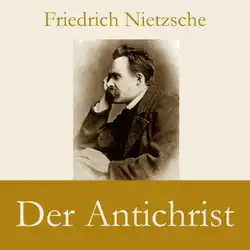In 'The Genealogy of Morals' by Friedrich Nietzsche, the author delves into the origins and development of moral values in society, analyzing concepts such as good and evil, guilt, and punishment. Written in Nietzsche's characteristic aphoristic style, the book challenges conventional beliefs and questions the foundations of morality. Drawing on historical and psychological insights, Nietzsche explores the complex interplay between power dynamics and moral codes, presenting a provocative critique of traditional ethical systems. The literary context of the book is rooted in Nietzsche's broader philosophical oeuvre, showcasing his unique perspective on human nature and societal norms. Friedrich Nietzsche, a renowned German philosopher known for his critiques of religion and morality, was inspired to write 'The Genealogy of Morals' as part of his ongoing exploration of human behavior and values. Building on his previous works, Nietzsche offers a captivating analysis of the psychological motivations behind moral beliefs, sparking intellectual debate and reflection. I highly recommend 'The Genealogy of Morals' to readers interested in philosophy, ethics, and psychology. Nietzsche's profound insights and thought-provoking arguments make this book a key text for anyone seeking to deepen their understanding of moral philosophy and the complexities of human behavior.

50 Meisterwerke der Philosophie : Metaphysik, Das Gastmahl, Bhagavadgita, Tractatus logico-philosophicus, Kritik der reinen Vernunft, Also sprach Zarathustra, Selbstbetrachtungen von Marcus Aurelius
Ludwig Wittgenstein, Edmund Husserl, Karl Marx, Søren Kierkegaard, Friedrich Nietzsche, Ralph Waldo Emerson, John Stuart Mill, Georg Wilhelm Friedrich Hegel, Friedrich Schelling, Johann Gottlieb Fichte, Immanuel Kant, John Locke, Montesquieu, Jean Jacques Rousseau, David Hume, Gottfried Wilhelm Leibniz, Baruch Spinoza, Konfuzius, Laotse, Platon, Xenophon, Aristoteles, Marcus Tullius Cicero, Seneca, Epiktet, Marc Aurel, Plotin, Thomas von Aquin, Nicolaus von Cues, Erasmus von Rotterdam, Niccolò Machiavelli, Tommaso Campanella, Martin Luther, Giordano Bruno, Samuel von Pufendorf, Abbé Castel de Saint-Pierre, Michel de Montaigne, René Descartes, Francis Bacon, Blaise Pascal
book
Der Antichrist
Friedrich Nietzsche
audiobookbook
Der Antichrist
Friedrich Nietzsche
audiobookbook
Lyrikalische Lesung Episoden 81-85
Georg Heym, Stefan Senf, Hugo von Hoffmannsthal, Friedrich Nietzsche, Else Lasker-Schüler, Ludwig Kalisch, Jakob van Hoddis, Charles Baudelaire, Georg Trakl
audiobook
Unzeitgemäße Betrachtungen Band 2
Friedrich Nietzsche
audiobook
Unzeitgemäße Betrachtungen Band 1
Friedrich Nietzsche
audiobook
Lyrikalische Lesung Episoden 56-60
Johann Wolfgang von Goethe, John Keats, Annette von Droste-Hülshoff, Arno Holz, Wilhelm Busch, Georg Heym, Heinrich Heine, Franz Werfel, Charles Baudelaire, Rainer Maria Rilke, Friedrich Nietzsche, Hugo von Hofmannsthal, Edgar Allan Poe
audiobook
Lyrikalische Lesung Episoden 51-55
Frank Wedekind, Rainer Maria Rilke, Georg Heym, Charles Baudelaire, Annette von Droste-Hülshoff, Christian Morgenstern, Joachim Ringelnatz, Arno Holz, Wilhelm Busch, Heinrich Heine, Stefan Zweig, Georg Trakl, Friedrich Nietzsche, Ludwig Tieck, Edgar Allan Poe
audiobook
Lyrikalische Lesung Episoden 41-45
Karl Kraus, Charles Baudelaire, Rainer Maria Rilke, Wolfgang Borchert, Georg Trakl, Wilhelm Busch, John Keats, Georg Heym, Annette von Droste-Hülshoff, Else Lasker-Schüler, Heinrich Heine, Johann Wolfgang von Goethe, Arno Holz, Friedrich Nietzsche, Stefan Zweig, Ludwig Tieck, Frank Wedekind, Joachim Ringelnatz, Christian Morgenstern
audiobook
Unzeitgemäße Betrachtungen 11
Friedrich Nietzsche
audiobook
Ainsi Parlait Zarathoustra - Livre Audio
Friedrich Nietzsche, Livres audio en français
audiobook
Le Gai Savoir - Livre Audio
Friedrich Nietzsche, Livres audio en français
audiobook
